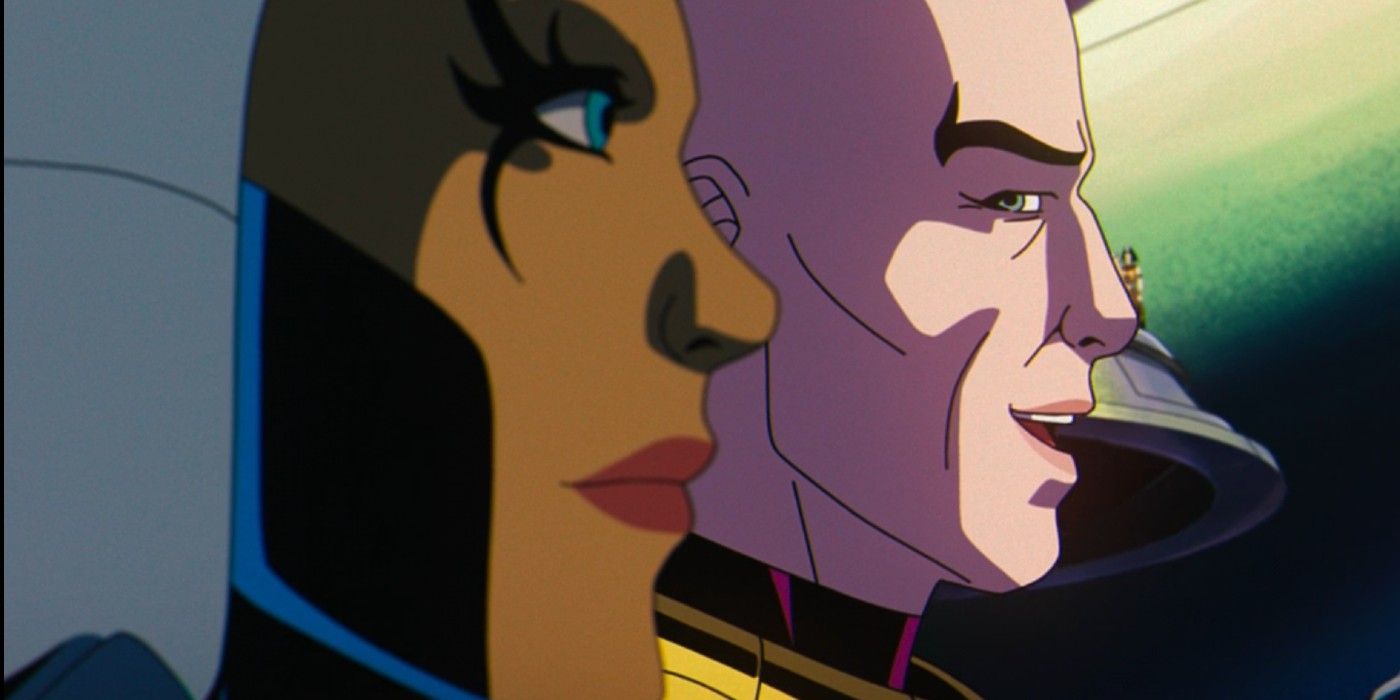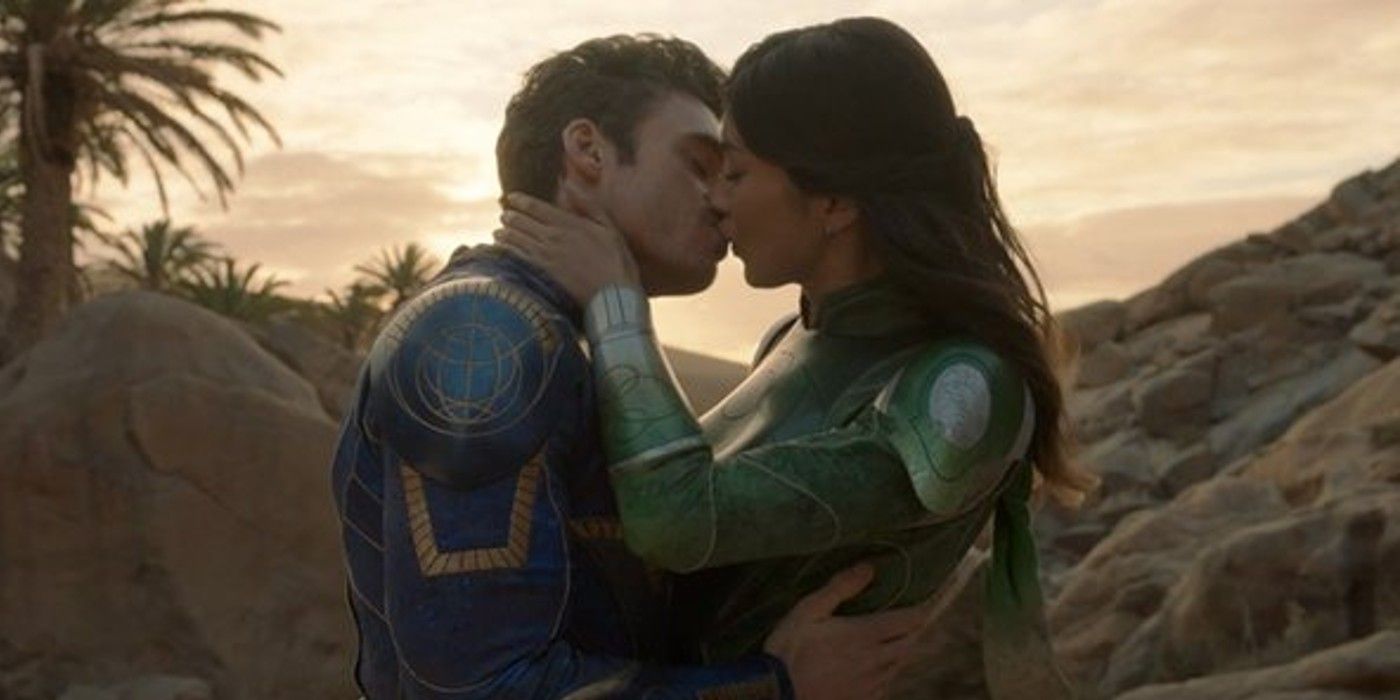2024’s best Marvel release has changed the game in the MCU era, leaving an old superhero trope in the past. But will the MCU follow?

Warning: This article contains SPOILERS for X-Men ’97 episode 6.
16 years after the MCU debuted, Marvel is still throwing up surprises, with X-Men ’97 daring to take on subject matter the mainline franchise wouldn’t have dared to in its early days. That the revived X-Men show did so within its first six episodes after its near-3-decade hiatus is even more impressive. The continuation of the beloved X-Men: The Animated Series has proved very quickly that it isn’t against breaking the rules.
While the MCU movie timeline took 7 years to kill a prominent character (and even then Quicksilver was largely introduced to be killed off), X-Men ’97 made the huge statement of killing both Magneto and Gambit off in episode 5. Comic book deaths have a habit of being impermanent, but the very idea of killing the coolest X-Men hero and their leader (and most prominent villain, historically speaking) flipped the script massively. Creator Beau DeMayo and head director Jake Castorena have both spoken since about the agenda to make the audience face grown-up realities, but it’s in an entirely different revelation from X-Men ’97 episode 6 that the real difference to the MCU stands out.
X-Men ’97’s Embrace Of Sex Breaks The MCU’s Unwritten Rule

Superheroes are a curiously sexless breed: you need only consider the furore around Zack Snyder daring to include a sex scene in Watchmen – an R-rated movie – for a quick read on the final real taboo of the genre. On top of that, when the MCU finally showed a sex scene, it was treated as an auspicious, almost brave stride out into new waters. In Eternals, Sersi (Gemma Chan) and Ikaris (Richard Madden) consummate their romance on screen with flashes of nudity and some choreographed movements. It’s all very PG-13, but director Chloe Zhao’s comments on the matter suggest it was a lot more:
“For us to be able to show two people who love each other, not just emotionally and intellectually but also physically, and to have a sex scene that will be seen by a lot of people that shows their love and compassion and gentleness — I think it’s a really beautiful thing.”
But flash forward to the latest episode of X-Men ’97, and Professor X seemingly confirmed not only that he’s sexually active, but that he has a thing for master/pet dynamics. Has he said anything remotely similar 30 years ago when X-Men: The Animated Series was originally airing in its Saturday morning slot, heads would surely have rolled, but now, in 2024, it feels right.
Beau DeMayo – the creator of the revived show – responded to my own query about how actively sex-positive the show is by saying “Absolutely this was intentional with Xavier and almost all the mains this season. X-Men is a soap opera and a big ingredient in that is sex.” So it’s all intentional, and it reflects the dynamic of the characters, all living in close proximity and sharing experiences and trauma in equal measure. Of course it would be an emotional melting pot, and of course the natural next step would happen.
But Professor X expressing a personal kink in a throw-away comment, or Rogue and Magneto’s tryst for that matter, are wildly at odds with the first decade of the MCU and more. And the idea that a cartoon would be more open to that side of character-based story-telling than one of the most untouchable brands in all of media is an odd thing to reoncile.
The MCU Hasn’t Always Been Entirely Celibate

That’s the thing with the MCU: it’s very squeamish about physical sexual activity – far more, obviously, than its happy embrace of the rest of the traditional romantic spectrum. Marvel superheroes can fall in love with each other, or can foster unrequited feelings of love, or can joke about it crassly, but they weren’t ever really allowed to DO it. At least not anywhere near the screen – Ant-Man, Hawkeye, Drax, and Iron Man and Pepper Potts all have children obviously, but they’re there for story purposes, not to remind anyone of how they came to be.
The MCU has flirted with admitting its heroes are sexually active: She-Hulk was an over-compensation for some, but even before that, Tony Stark was presented as a lothario as part of his “wild child” image, and Star-Lord had his James Kirk parallel of promiscuous alien encounters. Even the more kid-centric Spider-Man: Homecoming has one joke Ned viewing about adult websites – but then it mostly ignores the raging undercurrent of Peter Parker’s powers being an allegory for puberty.
Avengers: Age of Ultron obviously had Iron Man make the now infamous “hide the zucchini” joke, but that was very throw-away, and meant to show Tony hadn’t lost his impish spirit. And the franchise is so sexless that the question of how Scarlet Witch and Vision might procreate was left to magical lore and the imagination. That one’s probably for the best.
Things have changed more recently of course. We know Captain America “f*cks” thanks to She-Hulk, and that show was the first to show a one-night-stand between two active superheroes, but those revelation didn’t come until 2022, 14 years after Robert Downey Jr’s Tony Stark admitted his Iron Man identity to the world. X-Men ’97 got there in less than 6 episodes. Less than 6 hours of content.
Would Superhero Sex Be Too Gratuitous?
Where Is The acceptable Line?

And now for the million dollar question: does the modern audience have the capacity to watch sex scenes? Is the demographic even right? She-Hulk‘s more open and realistic attitude to sex was helped by its release on Disney+, but even then, it wasn’t put behind a rating wall, and there remains criticism that it pushed things too far. Obviously, you have to look at that question of rating more when it comes to movies. Perhaps that’s why Netflix’s Marvel shows and even Agents of SHIELD were more willing to show their heroes after dark, in a way far removed from the tame official first sex scene of Eternals.
Eternals obviously wasn’t given an R rating, because nothing that happened between Sersi and Ikaris remotely qualified it for one, but had it gone further, Marvel Studios would have had to contend with the might of the censors. And an R rating is still held up as a box office draw back, even with the recent successes of the likes of Deadpool and Joker, and there’s such discourse around the idea of R-rated MCU movies that it’s almost a cottage industry. That conversation also always seems to center violence over the depiction of sex, and it feels very unlikely we’ll ever see anything even at She-Hulk‘s level in an MCU movie.
But then, why does acknowledging sexuality have to come with an R rating (hard or otherwise)? X-Men ’97‘s acknowledgment of sex is no less PG-13 than Eternals, but it’s done without the faux reverence. And the dynamics between the characters warrants the focus on sex, rather than it being in any way gratuitous. Nobody is asking for anything ridiculous, of course, or for every MCU movie to be peppered with sex for no justified reason, but at this stage, it feels like Marvel is actively avoiding the question.
